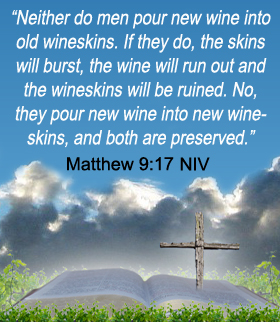Who has woe?…Who has contentions?…Who has redness of eyes? They that tarry long at the wine: they that go to seek mixed wine. Look not on the wine when it is red…at the last I bites like a serpent…Your eyes shall behold adulterous women and your heart shall utter perverse things. Yes, you shall be as he that lies down in the midst of the sez, or as he that lies on the top of a mast. When shall I awake so I can find another drink? (Prov 23: 29-35).
This proverb is very personal to me as I was one of every five persons who drink alcoholic and become an alcoholic in America. Mixed wine refers to mixing non-alcoholic grape juice with grape juice which is fermented to create alcohol of varying strength. Like warnings in both the OT and NT, this proverb concerns God’s revelation that His people are to abstain from intoxicating drink. And many examples of the consequences are found in scripture. The drunkenness of Noah led to a curse on Canaan because his father Ham failed to cover the nudity which had disgraced Noah. Lot became drunk and it resulted in having incest with his two daughters, producing two sons whose descendants would eventually become the Moabites and Ammonites, bitter enemies of God’s chosen people following their deliverance from Egypt. Nadab and Abihu, sons of the high priest Aaron, offered unlawful fire to God and fire came from the LORD to kill them. Immediately following this, God told Aaron that those going into the tabernacle to serve Him must abstain from intoxicating drink lest they die (Lev 10:9), suggesting Aaron’s sons behavior had been related to inebriation.
Proverbs 23:20 warns, “Be not among winebibbers” speaking of those who make a habit of drinking alcoholic beverages. Such is in harmony with NT teaching that the wrong company corrupts good character. And Proverbs 20:1 adds, “Wine is a mocker, strong drink is raging, and whosoever is deceived thereby is not wise.” Proverbs 31:4,5 tells us that alcoholic drink is “not for kings” or those in leadership lest they fail to rule over others justly. One choosing to be dedicated wholly to the Lord and the highest standard of holiness in the OT would make a Nazirite vow as an example of what godly life should be like (Numbers 6:1-8). The vow included abstinence from fermented (alcoholic) drink, removing any possibility of becoming intoxicated or addicted.
Many do not realize the Greek word oinos which translates as “wine” in the NT embraced both fermented and non-fermented grape juice, the latter being non-alcoholic. The miracle of wine made from water as Jesus’ first miracle was to manifest His glory so that the disciples might have faith in Him (John:11). The wine made from water was called choice or best from the Greek kalos which literally means noble, good, or excellent in the sense of morally befitting. It was made in abundance by Jesus and could never have been alcoholic so the wedding guests might become drunk. Such would not be consistent with later teaching that drunkenness keeps one from the kingdom of heaven if habitual (Galatians 5:19-21). The miracle was to symbolize the new wine of the gospel being better than the old wine of Judaism with which the people found themselves satisfied. s
Those pastors and others in church leadership positions who teach tolerance of alcoholic drink are either ignorant of scripture or have decided to pick-and-choose in a cafeteria style which of God’s commands to obey. They will find themselves accountable for their unbiblical teaching about alcohol on the Day of judgment and will have blood on their hands for every person who became an alcoholic or had a marriage destroyed because of alcohol abuse because consuming alcohol was condoned by a preacher who couldn’t put his own misdeeds of the flesh to death (Romans 8:13). So it is that Jesus warns sternly, “Beware of false apostles who come in sheep’s clothing.” He is speaking of those having credentials from a bible school or seminary and are falsely assumed to be preaching scripture correctly. The latter is an extremely dangerous assumption of a great many today.


